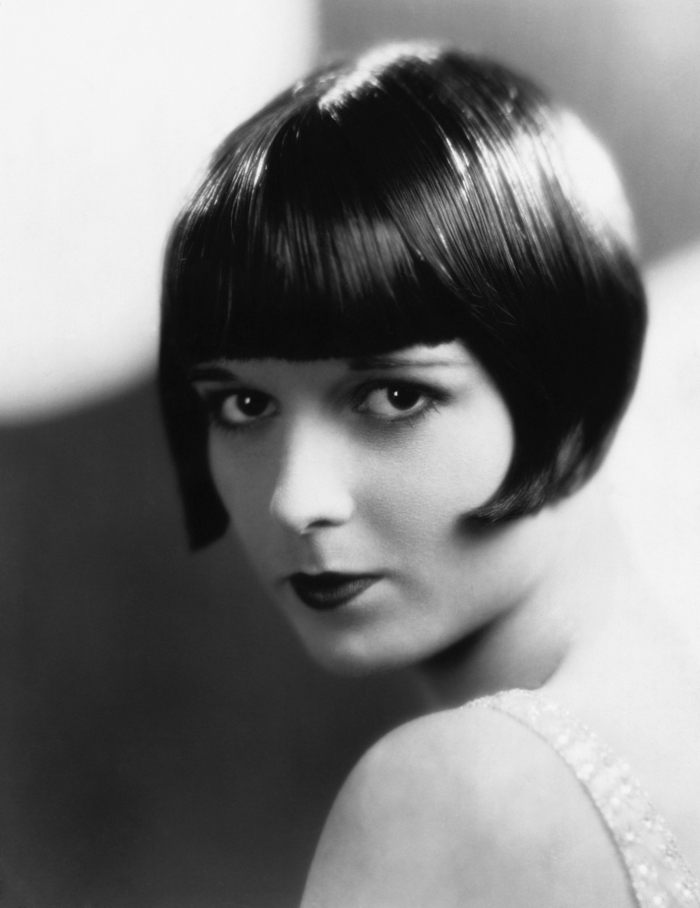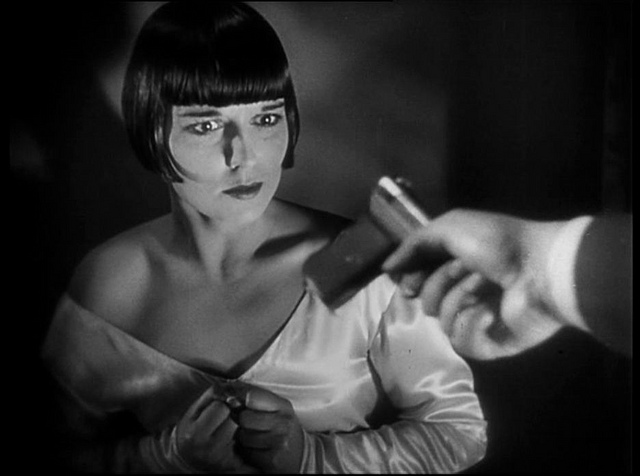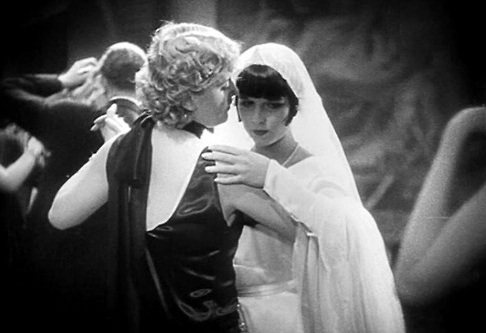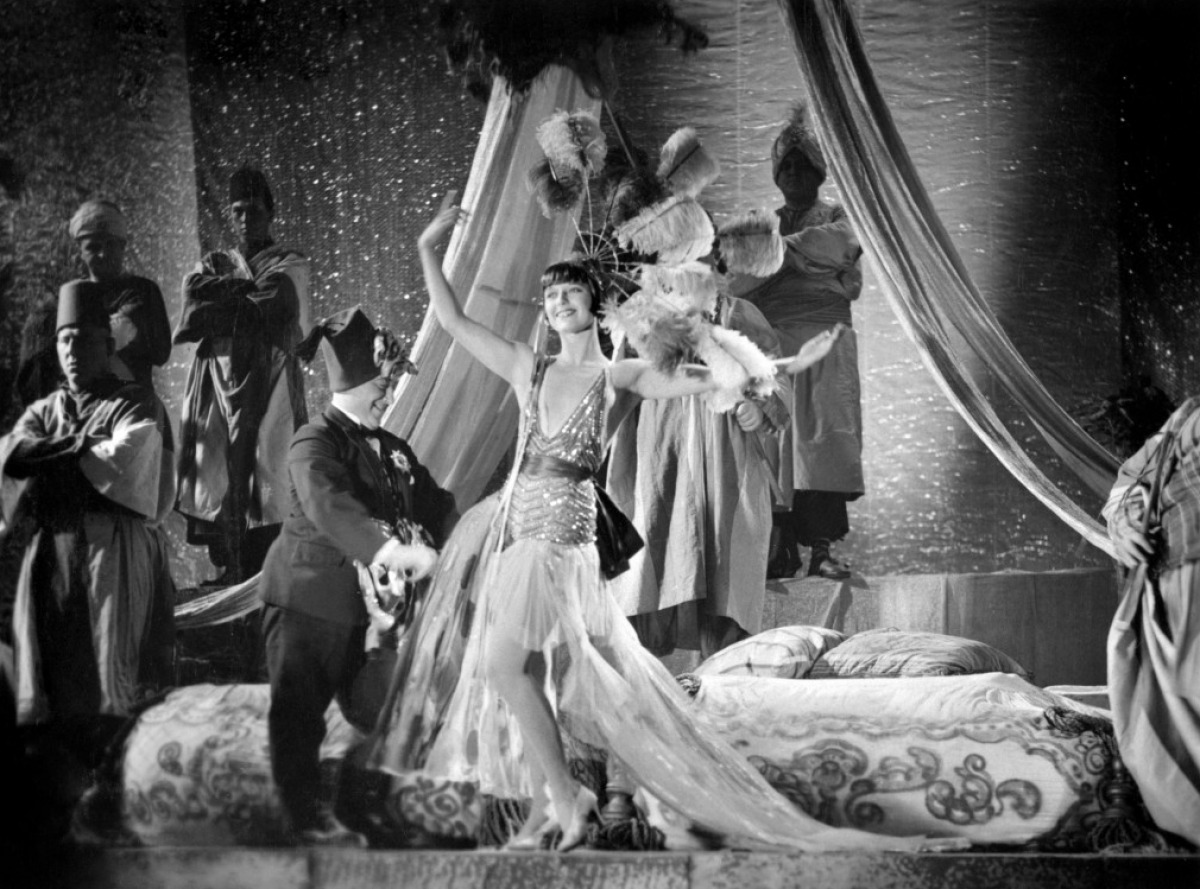I first got interested in silent films in my teens, when, among all the other secondhand items washing constantly back and forth through our home thanks to my stepdad's work on the markets, there were many books about the history of cinema. These were usually hardbacks in a format not unlike a magazine annual, featuring lots of pictures and text that told you just enough to whet the imagination but not enough to satisfy it. It was in one of these books that I saw my first picture of Christopher Lee as Dracula: a formative and heart-stoppingly erotic split second. From them, I learned of the Creature from the Black Lagoon, the Cabinet of Dr Caligari, Max Shreck's Nosferatu and many other favourites.
I never really expected to see any of these films. I lived in a pre-internet world with very little spending money, with a head full of things I'd read about but had written off as inaccessible: music festivals, foreign cities, queer culture, personal autonomy. It had taken months, maybe a year, after I first became obsessed with the Velvet Underground for me to actually hear any of their music, for instance. My adult life is different and I'm still not entirely used to it.

Louise Brooks
Anyway, Pandora's Box. Of course Louise Brooks and her Lulu bob were held up in every book I flipped through that covered the silent era, and she was even namechecked in a Marillion song I loved — wow, the lyrics to that feel very different now than they did when I was a teenager. I longed to see this film for years, but it occurred to me, as I sat next to David and Kelsey in the Kino Cameo last Friday, that I didn't really know much about the plot. Something about a seductress, a vamp?
Wikipedia's summary of the character of Lulu, and by extension of the plot of the film, is typical of the descriptions I'd read before: "a seductive, thoughtless young woman whose raw sexuality and uninhibited nature bring ruin to herself and those who love her." That's the film I expected to see when I sat down. Though I enjoyed Pandora's Box very much, that wasn't what I saw.
Spoilers for an 87-year-old movie follow. All quotes are translated from memory.
Pandora's Box, as far as I can tell, is the story of a young woman who is latched onto by a series of men, all unpleasant, foolish or both, who bring ruin to themselves and her as well. Throughout the film, Lulu is dogged by Schigolch, her first patron/pimp/adoptive father figure. (The exact relationship between them is ambiguous but can be guessed at from a scene midway through, where the Countess Geschwitz challenges the prosecutor at Lulu's trial: "How do you think your wife would have turned out if she'd been driven through the streets and cafés as a mere child?") He sees her as his asset, causes disaster with his interference in her life, and ends the film eating Christmas pudding in a pub.

Schön forces the gun on Lulu.
Schön, who keeps Lulu as his mistress at the start of the film, is violent and obsessively attentive to anything that might harm his reputation, but so oblivious to the fact that she has feelings of her own that, after casting her off, he brings his new fiancée to watch her perform in her big stage opportunity. After Schigolch and Quast — an acrobat and partier who later sours and blackmails Lulu — cause a scene at Schön and Lulu's wedding, he tries to force her to shoot herself. "Kill yourself, so that you don't make me a murderer on top of everything else!" Those aren't the words of an innocent man ruined by a pretty face.
Quast I have mentioned; Casti-Piani is happy to flirt with Lulu but his eye, too, is on the money he can press out of her and Alwa, Schön's son. Alwa is a somewhat special case. He and Geschwitz are the characters who are most in love with Lulu, and the most directly devastated by their feelings for her. In Alwa's case, especially, his attraction makes him a fool, running from the law with Lulu despite his misgivings and ending up homeless in London. Geschwitz was my favourite character (such a surprise): the most sensible of Lulu's admirers, she almost made it through the film unscathed and at least came out alive.

Geschwitz dances with Lulu at the wedding.
It's undeniable that Lulu tends to be thoughtless, shallow, and naïve. Having — through a sudden plan of Geschwitz's — escaped the court room where she had been convicted of the manslaughter of Schön, she returns to their marital home and runs a bubble bath. "Where else should I go but home?" she asks the shocked Alwa, with a smile. "If you feel at home here, where my father bled to death, then — I have to leave!" he dramatically replies. Later on, as the two make their escape to Paris, Alwa skulks in a train corridor with his collar turned up, waiting to fox the officials who are inspecting baggage and passports. Lulu the escaped convict, meanwhile, blithely opens her cabin door and asks the first man she sees for a light. Unfortunately, it's Casti-Piani.
Still, it's not as though she has anything more to her name than a pretty face and a bit of skill at dancing. Kelsey described the film as the story of a woman trying to survive. Through it all, she remains optimistic and generous in spirit. Her last act, in fact, is to reach out and make a human connection. (Unfortunately, it's with a time-displaced Jack the Ripper.) Though the tactics she chooses are not always the most practical or honourable, Lulu behaves a damn sight better than most of the other characters in the film. Her unconventional and unguarded demeanour, however, provides a convenient excuse to blame her for whatever goes wrong, both in the film and outside it.
Spoilers end.
The showing we went to was introduced by the film historian Martin Girod, who addressed the question: Is Lulu a vamp? The version of her in this film, I would say, is not; she's just seen that way, by every man she meets, with a wonderfully hypocritical myopia.
Cinematically, Pandora's Box was a delight to watch. We saw the 2010 restoration, painstakingly cut together from prints that had been archived across Europe, with substantial support from Hugh Hefner. Brooks's performance was wonderful — she was breathtakingly beautiful, far more so in motion than stills convey, animated and emotionally convincing. Francis Lederer, who played Alwa, was also very handsome. There were some really funny moments amongst the melodrama, most notably an extended scene backstage at the variety show where Lulu is supposed to make her debut. This is not a film that feels like what you might imagine when hearing, "143-minute silent black-and-white movie."

Lulu performing in the variety show.